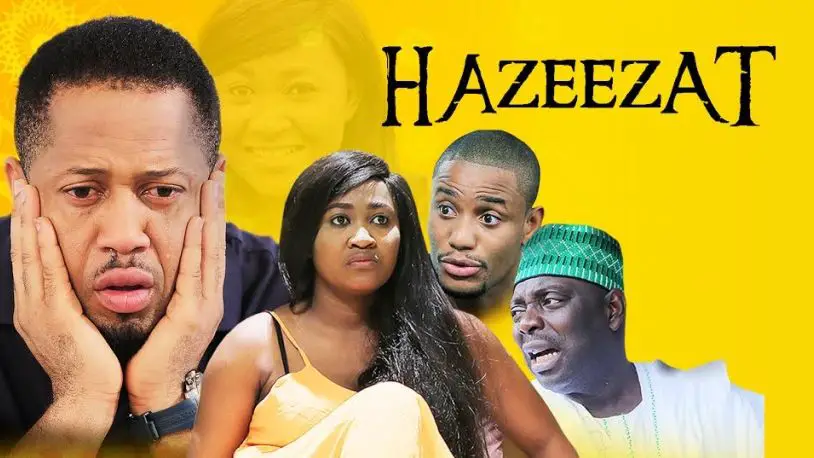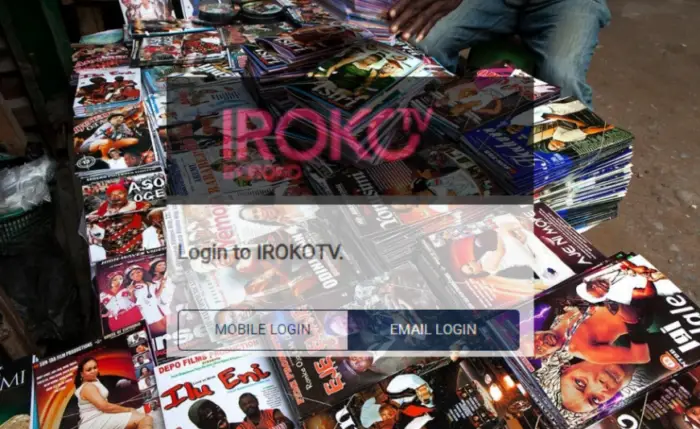History of IrokoTV
Before it became IrokoTV, it was known as Nollywood Love — a YouTube Channel created in 2010. Founded by Jason Njoku, the whole idea transpired from the need to make Nollywood content more accessible. Jason was inspired to start iROKOTv after discovering how difficult it was to obtain Nollywood movies online for his mother; at that time, he was living with her in London, England.
Back in Nigeria, Nollywood was in its Home Video Boom era during this time. As of 2008, the Nigerian film industry was approximately releasing over 200 video films monthly on videocassettes, only available within the country. The industry in the country was also battling piracy around the same time.
Although Jason Njoku only saw the need to want to make the movies that were being made in Nigeria and Africa at large more accessible to people living in the diaspora, his inception of IrokoTV contributed largely to Nollywood.

Early investments in IrokoTV
To properly launch and reach his full potential with the film-on-demand streaming platform, Njoku had to travel back to Nigeria to purchase the online licenses of Nollywood movies directly from the producers. He used these acquired licenses to stream full-length Nollywood movies, for free, on his channel, Nollywoodlove.
Following his success with NollywoodLove, the founder attracted nearly eight million dollars investment from Tiger Global Management, a New York-based private equity which shared Jason’s vision for the digitisation of African content.
Alongside the backing of Tiger Global Management, Jason Njoku turned NollywoodLove into IrokoTV- becoming a standalone and independent African movie-streaming website. The platform attracted more than half a million views in less than six months.
Related Articles:
– Nollywood history: How it became the world’s second largest film industry
– Five Nollywood actresses starring in lead roles in major 2022 movies
– Top 10 latest Nollywood movies 2021 on Netflix.
In the summer of 2012, iROKOtv got an additional investment of two million dollars under a Swedish hedge fund-backed arrangement, further expanding Njoku’s vision — which was to make Nigerian movies accessible through the internet. This plan panned out so well, and his website’s inception started to gain international media attention.
Subscription model & Canal Plus acquisition
iROKOtv was offering full-length movies for free in its early years; all you needed was to complete a quick registration to gain full access to these movies. However, it began offering only about 80 to 95 per cent of its movies for free. The remaining percentage of movies — new movies, to be precise — were offered at a price. The website adopted a subscriber mode of operation similar to Netflix and other streaming platforms. For a monthly payment of five dollars, subscribers gained access to any movie of their choice for a month.
When this model was introduced, iROKOtv had been recorded as having over 500,000 subscribers. With all these feats, in no time, IrokoTV was quickly nicknamed the ‘Netflix of Nigeria’ (this was before Netflix penetrated the African Market).
The website’s popularity lasted for a while and contributed significantly to housing Nollywood content on the internet. It further evolved beyond just being a movie on-demand web platform. A film studio was made out of the VOD platform in 2013 to create original content for iROKOtv. However, the idea only became more prominent in 2019 when French television company Canal Plus acquired the film studio to bring Nollywood productions to other countries and regions in Africa.
Before Canal Plus’ acquisition, the studio was named ROK Studio. It produced films and television series that were low-budget and primarily shot on location in Nigeria to connect with African audiences wherever they might be, both at home and abroad. Also, these movies were characteristically sometimes produced by Mary Remmy Njoku, Jason’s wife. She also starred in a lot of them and serves as the prime engine of the film studio.
Although, in some other movies, the studio is credited as co-producers in some other productions. Some of ROK Studio’s productions have had appearances from Alex Ekubo, John Dumelo, Eve Esin, Yvonne Jegede, and other Nollywood actors.

IrokoTV leaves Nollywood and African Industry
However, in 2020, after nine years of the VOD presence in Africa, its founder announced that the platform was leaving the African market. That year, Jason explained that IrokoTV was reverting its focus from the African market and focusing on the VOD customers in North America and Western Europe. There are many reasons why iROKOtv failed to thrive immensely in Africa despite it being able to spearhead Nollywood movies digitally and worldwide.
The most glaring reason, which even Jason Njoku admitted to, was the macroeconomics of the African region. For Nigeria, there’s the issue of devaluing currency which makes it difficult for the average person to continue to maintain their monthly subscription to the VOD platform. Its founder saw better potential for the platform in the West.
iROKOtv was not the first video-on-demand service in Africa to shut down its operation at that time. Before iROKOtv’s announcement, one of Africa’s leading paid TV services, Kwese TV, owned by telecoms giant Econet, shut down its operations, including its video-on-demand service, Iflix and Kwese Play.
With the departure of these VOD platforms from the African market, one thing was clear: while the movie industry on the continent had evolved to some extent, Africa wasn’t a good place for startups to thrive yet.
iROKOtv might have exited, but it doesn’t entirely mean the platform isn’t available; movies are still being made available with only a few subscribers left in Africa. Netflix has become a better and leading streaming platform for Nollywood content nowadays. With all being said, iROKOtv pioneered video-on-demand for Nigerian movies despite being short-lived.
You may also like to read our latest article, 10 blacklisted Nollywood actors and actresses, see reasons.


